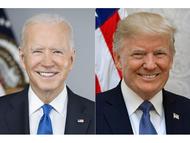Reassess & Redirect - ORIGINAL CONTENT
- By:
- Edward A. Reid Jr.
- Posted On:
- Nov 12, 2024 at 6:00 AM
- Category
- Energy Policy, Climate Change
The UN Secretary General, the authors of the IPCC Summary for Policymakers, numerous developed country governments and much of the consensed climate science community assert that the climate is in crisis, that fossil fuel use must be eliminated and that the globe must achieve Net Zero CO2 emissions by 2050 to avoid Climageddon. The current US Administration has been supportive of this position and has spent an enormous fortune on climate “research” intended to create scary scenarios of potential future climate conditions based on fantastic Representative Concentration Pathways and overheated climate “models”.
The incoming US President does not accept the climate crisis narrative. He and his Administration can be expected to reassess the state of the climate based on the available data rather than the narrative hype, to redirect climate research funding to address significant climate issues, and to question the continuation of incentives and subsidies for the ongoing energy transition.
Much of the consensed climate science community asserts that “the science is settled”. This blog has dealt almost exclusively with the issues of unsettled “settled climate science” and with unrealistic climate change policies. It is hard to reconcile the concept of “settled science” with the fact that there are still multiple climate models, climate sensitivity is still expressed as a potential range of values, and it is uncertain whether climate feedbacks are positive or negative. These are issues which should have been aggressively addressed and resolved before spending trillions of dollars on unplanned mitigation efforts relying on unavailable or uneconomical technology.
It is unreasonable to be overly concerned about global warming of approximately 1.5°C when approximately half of that measured warming is the result of the Urban Heat Island effect and manifests as increased nighttime temperatures.
This blog has previously questioned the incentives and subsidies provided by the current Administration to solar, wind and electric storage battery installations. These three technologies are mature. They have been and are being installed in numerous countries all over the globe. They should be able to compete for market share without incentives and subsidies.
The new Administration is also expected to question numerous “all-of-government” regulations intended to reduce CO2 emissions including the EPA Powerplant Rule, the effective EV “mandate” driven by revised CAFÉ standards for fossil fueled vehicles and the SEC CO2 emissions reporting requirements. The end of EV “mandates” would likely also curtail the current, but ineffective, EV charging station installation program.
The implementation of intermittent renewable generation has resulted in the installation of redundant generation capacity which requires ongoing support from the existing conventional generation fleet. Were this renewable generation combined with sufficient electricity storage capacity it might cease to be redundant. However, as this blog has pointed out (here), the current electricity storage capacity constitutes a significant storage deficit. The storage requirements to eliminate coal and natural gas generation are daunting. The scale of incremental generation and storage requirements to achieve “all-electric everything” are mind-boggling. It is highly unlikely that the new Administration would continue to pursue replacement of the current electric generation fleet with renewables plus storage or to continue to pursue all-electric everything.
Regrettably, the inflation which has resulted from the installation and subsidy of redundant renewable generation capacity is likely “baked in” and will persist.


